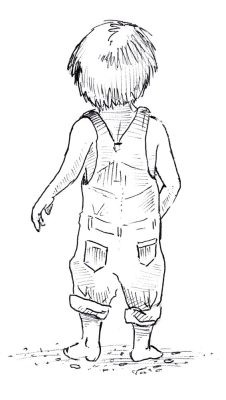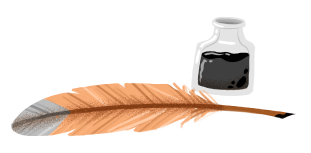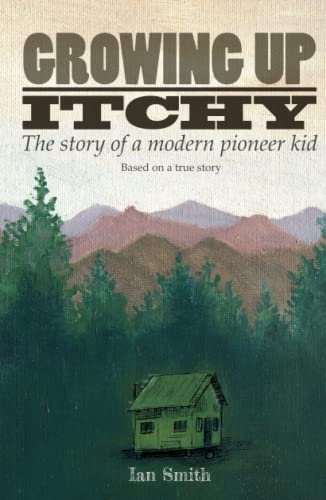This is the official online version of this book. You can purchase this book here in hardcover or paperback.
The 1880’s and the 1980’s collide in a series of reluctant adventures; a riveting tale of introversion, retroversion, and excursion.
You’ll enjoy this story of a childhood far from civilization, where running water and electricity have been replaced with hard work and fire; and the simple act of bathing is a dreaded chore.
Read about Grey – a boy growing up in the remote mountains of Washington State, along the Canadian border. His family abandoned the land of southern California to get back to nature; and their life on the mountain is a throwback to a long-lost era.
Grey’s itch for stability is continually interrupted by the uncommon experiences of their pioneer-style existence. Clean mountain air, fresh water from underground springs, and wild animals are the hallmarks of a rare childhood in the early 1980’s.
(end of back cover)
Grey’s hand absently reached around and rubbed at his neck, taking care of a slight itch that pestered him.
He was three years old and had already developed the completely autonomous action of scratching.
He was itchy. He didn’t really know this, as it was simply the default state of his skin. That’s just how skin felt – a boy just had to scratch it sometimes. He was a brown-skinned kid – but his color was comprised of suntan and a healthy layer of dirt.
He licked the back of his hand, and rubbed it hard against his overalls. He enjoyed the saltiness; the sweat and dust were a familiar taste. Young boys liked familiar things. He stared at his hand for a moment, thinking nothing. A pink spot shone through the brown; a circular patch had been licked away. He was pink, not brown. He scratched at the clean spot absently.
The tan was the result of playing out in the blistering desert. He lived in the Mojave in southern California, where clouds dared not venture. The sun was an ever-present friend, a golden glow that warmed him daily as he wandered around the squat apartment complex. He loved to be out in the sun, it dominated the sky and was another familiar thing. It watched over him as he explored, wandering the rows of buildings that were his neighborhood. It wasn’t dangerous really; the place was mostly deserted and he was obsessively careful not to get lost. He kept his eye on his own doorway, because it looked almost identical to all of the others. He had felt the panic of being lost once before, and never forgot it.
The sun baked the earth, and warmed the air to the point of shimmering. It scalded the dry lake bed that lay like a massive white sheet on the ground, a few hundred feet away from the cluster of dwellings.
Inside was where Mom lived. It was a dim place, full of familiar comforts; food, much-needed baths, and a few sorrows. Nothing terrible. The usual tears when he couldn’t have his way, or getting into the kind of trouble which typically surrounds little boys. The life of a three-year-old is an alternating pattern of ups and downs, but playing outside was always the best of times.

Their home sat at the back end of a tiny town. It was nearly deserted. They lived on the outer edge; the drab cluster of apartment buildings lay to one side, and the desert stretched wide in every other direction.
“Grey!”
Grey stopped scratching at the pink spot on his hand.
“What?” he asked.
Before him stood his friend, another small boy. This kid was almost a mirror image of Grey; a brown-skinned three-year-old with white hair, stained denim overalls, and freckles across his nose. They were not related, but a passerby might have mistaken them for twins. Both boys had no shirt, no shoes, and were covered in dust. They were the only two children in that small cluster of dwellings, so they played together often.
Grey’s little friend was pungent, but from Grey’s view, all was as it should be. No person would have called Grey clean, but he was not as brown as the other boy, not by a long shot.
Grey watched as his friend shook his leg awkwardly. They stood together in a patch of fleeting shade, in the alley between the squat apartment buildings that surrounded them.
“What?” Grey said again. He didn’t have a lot of words, being only three.
“Watch,” his friend said.
Grey watched. The other boy shook his leg furiously.
Something tumbled out of the stained denim tube. Something soft. Something brown.
A spicy aroma wafted up, and Grey’s nostrils tingled. It was a smell that Grey had known many times before. It was the primary method by which he identified his friend.
He scratched his nose.
As a youngster, he could smell pretty much everything. Someday, with wistful nostalgia, Grey would think back to the early years when his nose worked so perfectly. He’d discover one of the basic facts of aging: the older one gets, the worse the sense of smell becomes.
Smells are everywhere. They are part of the landscape. They belong to young boys, intertwining with their memories and wrapping themselves around everything they know. It’s almost a tragedy that three-year-olds are unable to appreciate the perfect function of their bodies. They take every good fortune for granted with no special thought.
Everything Grey knew had a smell. His hand had a salty smell after he licked it. Mom had a smell. Dad had a less familiar smell. The Outside had a smell, and Grey’s friend definitely had a smell – which had grown considerably stronger in the last thirty seconds.
Grey looked down at the brown thing, which was settling down into the dust and gravel with something akin to a gentle sigh.
His friend giggled, and ran away to go play out in the desert scrub.
“Come on!” He shouted back.
Grey was ready to follow, but something held his little feet, and he stood for a moment.
A cloudy thought rolled around in his young head like mist. It coalesced slowly, building into a stunning new realization.
We can change what happens.
The idea was astonishing.
His friend did something wrong, but he’d get away with it now. The evidence had been disposed.
Things kept happening to Grey. The world did what it wanted, and he was powerless to stop any of it. It bothered him in a way that he could not express, even in his own thoughts. He just did not have the words or the mental capacity yet. This new wordless idea began to grow like a seed in the fertile soil of his developing mind. He might be able to control his own destiny. Perhaps he could literally alter his future… maybe just change it a little?
He scratched the back of his neck. Maybe.



0 Comments